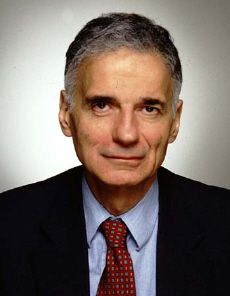The world’s largest prison — Gaza prison with 1.5 million inmates, many of them starving, sick and penniless — is receiving more sympathy and protest by Israeli citizens, of widely impressive backgrounds, than is reported in the U.S. press.
In contrast, the humanitarian crisis brought about by Israeli government blockades that prevent food, medicine, fuel and other necessities from coming into this tiny enclave through international relief organizations is received with predictable silence or callousness by members of Congress, including John McCain, Hillary Clinton and Barack Obama.
The contrast invites more public attention and discussion.
Israel has militarily occupied Gaza for forty years. It pulled out its colonials in 2005 but maintained an iron grip on the area — controlling all access, including its airspace and territorial waters. Its F-16s and helicopter gunships regularly shred more and more of the areas’ public works, its neighborhoods and inflict collective punishment on civilians in violation of Article 55 of the Fourth Geneva Convention.
As the International Red Cross declares, citing treaties establishing international humanitarian law, “Neither the civilian population as a whole nor individual civilians may be attacked.”
According to The Nation magazine, the great Israeli human rights organization B’Tselem, reports that the primitive rockets from Gaza, have taken thirteen Israeli lives in the past four years, while Israeli forces have killed more than 1000 Palestinians in the occupied territories in the past two years alone. Almost half of them were civilians, including some 200 children.
The Israeli government is barring most of the trucks from entering Gaza to feed the nearly one million Palestinians depending on international relief, from groups such as the United Nations Relief and Works Agency (UNRWA). The loss of life from crumbling health care facilities, disastrous electricity cutoffs, gross malnutrition and contaminated drinking water from broken public water systems does not get totaled. These are the children and their civilian adult relatives who expire in a silent violence of suffering that 98 percent of Congress avoids mentioning while extending billions of taxpayer dollars to Israel annually.
UNRWA says “we are seeing evidence of the stunting of children, their growth is slowing. . .” Cancer patients are deprived of their chemotherapy, kidney patients are cut off from dialysis treatments and premature babies cannot receive blood-clotting medications, reports Professor Saree Makdisi in the February 2, 2008 issue of The Nation.
The misery, mortality and morbidity worsens day by day. Here is how the commissioner-general of UNRWA sums it up — “Gaza is on the threshold of becoming the first territory to be intentionally reduced to a state of abject destitution, with the knowledge, acquiescence and-some would say-encouragement of the international community.”
Amidst the swirl of hard-liners on both sides and in both Democratic and Republican parties, consider the latest poll (February 27, 2008) of Israelis in the highly respected newspaper — Haaretz: “Sixty-four percent of Israelis say the government must hold direct talks with the Hamas government in Gaza toward a cease-fire and the release of captive soldier Gilad Shalit. Less that one-third (28 percent) still opposes such talks. An increasing number of public figures, including senior officers in the Israeli Defense Forces’ reserves have expressed similar positions on talks with Hamas.”
Hamas, which was created with the support of Israel and the U.S. government years ago to counter the Palestine Liberation Organization (PLO), has repeatedly offered cease-fire proposals.
The Israeli prime minister rejected them, notwithstanding “a growing number of politicians and security offices who are calling for Israel to accept a cease-fire,” according to Middle East specialist, Professor Steve Niva.
There is a similar contrast between the hardline Bush regime, the comparably hardline Democrats in Congress, and a recent survey by the American Jewish Committee (itself often hawkish on Israeli actions toward the Palestinians) of American Jewry.
As reported by Eric Alterman in the January 7, 2008 issue of The Nation, “a majority of Jews in this country oppose virtually every aspect of the Bush Admistration/neocon agenda,” including his war in Iraq and his belligerence toward Iran.
By a 46-to-43 percent plurality American Jews continue to support the creation of a Palestinian state, notes Alterman. Other polls show even higher support, among Jews in America, for a two-state solution.
Then Alterman comes to his conclusion, writing: “These views, however, have been obscured in our political discourse by an unholy alliance between conservative-dominated professional Jewish organizations and neoconservative Jewish pundits, aided by pliant and frequently clueless mainstream media that empower these right-wingers to speak for a people [Jewish-Americans] with values diametrically opposed to theirs.”
Makes for a healthy, constructive political debate doesn’t it?
If Democrats and Republicans were serious about peace in the Middle East, they would showcase the broad joint Israeli and Palestinian peace movements. These efforts now include the over 500 courageous Israeli and Palestinian families who have lost a loved one to the conflict and who have joined forces to form the Parents Circle — Bereaved Families Forum.
Together, these families are expanding a non-violent initiative to push for a peaceful resolution to the conflict. Even though some of the families have visited the United States, their efforts are almost unknown even to U.S. observers of that area’s turmoil.
A new DVD documentary titled Encounter Point (see www.encounterpoint.com) recounts the activities and passion of these Palestinian and Israeli families steeped in the peace philosophies of Mahatma Gandhi and Nelson Mandela.
Do you think members of Congress will give them a public hearing? A meeting? It would be worth asking your members of Congress to do so.
Ralph Nader, a son of Lebanese immigrants, was born in Winsted, Connecticut on 27 February 1934. He is a consumer advocate, lawyer, and author. This article originally appeared on his Web site Nader.org on 7 March 2008.
|
| Print

